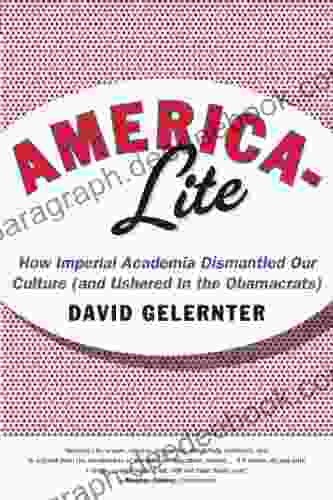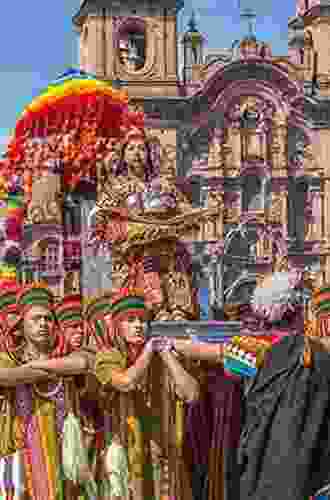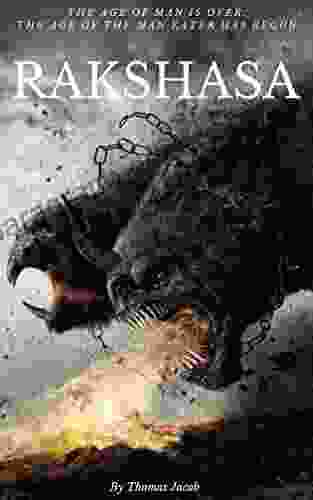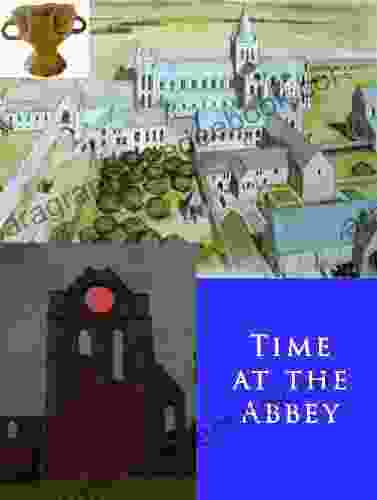Rakshasa: The Rise of the Man-Eaters

Rakshasas are a class of mythological beings found in the ancient Indian epics, the Mahabharata and the Ramayana. They are often described as cannibalistic demons who live in the forests and mountains and are known for their ferocity and strength.
5 out of 5
| Language | : | English |
| File size | : | 2879 KB |
| Text-to-Speech | : | Enabled |
| Screen Reader | : | Supported |
| Enhanced typesetting | : | Enabled |
| Word Wise | : | Enabled |
| Print length | : | 128 pages |
| Lending | : | Enabled |
The origins of Rakshasas are obscure, but they are thought to have originated from the asuras, a race of powerful demons who were defeated by the gods in a cosmic battle. After their defeat, the asuras were banished to the underworld, but some of them managed to escape and became the Rakshasas.
Rakshasas are often depicted as having red or black skin, long claws, and sharp teeth. They are also said to have the ability to change their shape and size, and they are often associated with darkness and evil.
Rakshasas are often portrayed as being hostile to humans, and they are known to kidnap and eat people. They are also said to possess magical powers, and they can use these powers to create illusions and cast spells.
In the Mahabharata, Rakshasas play a significant role in the story. They are often depicted as being allies of the Kauravas, the evil cousins of the Pandavas. The Rakshasas fight against the Pandavas in the Kurukshetra War, and they are eventually defeated.
In the Ramayana, Rakshasas play a more central role in the story. The main antagonist of the Ramayana is Ravana, a powerful Rakshasa king who kidnaps Sita, the wife of the hero Rama. Rama eventually defeats Ravana and rescues Sita, but only after a long and bloody war.
Rakshasas continue to be an important part of Hindu mythology and culture today. They are often depicted in art and literature, and they are the subject of many stories and legends. Rakshasas are also used as a symbol of evil and destruction, and they are often invoked in rituals and ceremonies to ward off evil spirits.
Etymology
The word "Rakshasa" is derived from the Sanskrit word "rakshas," which means "to protect." This suggests that Rakshasas were originally seen as protective beings who guarded the forests and mountains.
However, over time, the meaning of the word "Rakshasa" changed, and it came to be associated with evil and destruction. This change in meaning may have been due to the fact that Rakshasas were often depicted as being hostile to humans.
Mythology
Rakshasas are mentioned in many Hindu texts, including the Mahabharata, the Ramayana, and the Puranas. In these texts, Rakshasas are often depicted as being powerful and dangerous beings who are hostile to humans.
Rakshasas are said to live in the forests and mountains, and they are often associated with darkness and evil. They are often depicted as having red or black skin, long claws, and sharp teeth. They are also said to have the ability to change their shape and size, and they are often associated with magic and sorcery.
Rakshasas are often portrayed as being hostile to humans, and they are known to kidnap and eat people. They are also said to possess magical powers, and they can use these powers to create illusions and cast spells.
In the Mahabharata, Rakshasas play a significant role in the story. They are often depicted as being allies of the Kauravas, the evil cousins of the Pandavas. The Rakshasas fight against the Pandavas in the Kurukshetra War, and they are eventually defeated.
In the Ramayana, Rakshasas play a more central role in the story. The main antagonist of the Ramayana is Ravana, a powerful Rakshasa king who kidnaps Sita, the wife of the hero Rama. Rama eventually defeats Ravana and rescues Sita, but only after a long and bloody war.
Significance
Rakshasas continue to be an important part of Hindu mythology and culture today. They are often depicted in art and literature, and they are the subject of many stories and legends. Rakshasas are also used as a symbol of evil and destruction, and they are often invoked in rituals and ceremonies to ward off evil spirits.
The following are some of the most important significance of Rakshasas in Hindu mythology and culture:
- They are a symbol of evil and destruction. Rakshasas are often depicted as being hostile to humans, and they are known to kidnap and eat people. They are also said to possess magical powers, and they can use these powers to create illusions and cast spells.
- They are a reminder of the importance of dharma. Rakshasas are often portrayed as being allies of the Kauravas, the evil cousins of the Pandavas. The Pandavas represent dharma, or righteousness, while the Kauravas represent adharma, or unrighteousness. The war between the Pandavas and the Kauravas is a reminder of the importance of following dharma and of the consequences of following adharma.
- They are a source of fear and fascination. Rakshasas are often depicted as being powerful and dangerous beings who are hostile to humans. This can make them a source of fear, but it can also make them fascinating. Rakshasas are often the subject of stories and legends, and they continue to be a popular topic of discussion today.
Rakshasas are a complex and fascinating part of Hindu mythology and culture. They are a symbol of evil and destruction, but they are also a reminder of the importance of dharma and a source of fear and fascination. Rakshasas continue to be an important part of Hindu mythology and culture today, and they are likely to remain so for many years to come.
5 out of 5
| Language | : | English |
| File size | : | 2879 KB |
| Text-to-Speech | : | Enabled |
| Screen Reader | : | Supported |
| Enhanced typesetting | : | Enabled |
| Word Wise | : | Enabled |
| Print length | : | 128 pages |
| Lending | : | Enabled |
Do you want to contribute by writing guest posts on this blog?
Please contact us and send us a resume of previous articles that you have written.
 Book
Book Novel
Novel Page
Page Text
Text Reader
Reader Newspaper
Newspaper Sentence
Sentence Bookmark
Bookmark Glossary
Glossary Preface
Preface Synopsis
Synopsis Footnote
Footnote Codex
Codex Tome
Tome Bestseller
Bestseller Library card
Library card Memoir
Memoir Reference
Reference Dictionary
Dictionary Thesaurus
Thesaurus Character
Character Resolution
Resolution Librarian
Librarian Catalog
Catalog Card Catalog
Card Catalog Borrowing
Borrowing Stacks
Stacks Periodicals
Periodicals Study
Study Scholarly
Scholarly Reserve
Reserve Academic
Academic Journals
Journals Rare Books
Rare Books Special Collections
Special Collections Study Group
Study Group Dissertation
Dissertation Awards
Awards Reading List
Reading List Theory
Theory John Gibler
John Gibler Joe Kelleher
Joe Kelleher Christine Perry
Christine Perry Charles Frazier
Charles Frazier B Rain Bennett
B Rain Bennett Jan Fennell
Jan Fennell Murphy Wallace
Murphy Wallace Rhonda Bowen
Rhonda Bowen Hilary Mckay
Hilary Mckay Stephen Fink
Stephen Fink Eric Salzman
Eric Salzman Charles Dudley Warner
Charles Dudley Warner Stacy Russo
Stacy Russo Samuel Smith
Samuel Smith Steve Goldsworthy
Steve Goldsworthy Dane Calloway
Dane Calloway Kevin D Williamson
Kevin D Williamson Christian J Triola
Christian J Triola Vince Staten
Vince Staten Robert Elias
Robert Elias
Light bulbAdvertise smarter! Our strategic ad space ensures maximum exposure. Reserve your spot today!

 Ernest J. GainesHow Imperial Academia Dismantled Our Culture and Ushered In the Obamacrats
Ernest J. GainesHow Imperial Academia Dismantled Our Culture and Ushered In the Obamacrats
 Jonathan HayesDelve into the Enchanting Realm of Splinterlands: A Captivating Novel by John...
Jonathan HayesDelve into the Enchanting Realm of Splinterlands: A Captivating Novel by John... Alan TurnerFollow ·7.5k
Alan TurnerFollow ·7.5k Mario SimmonsFollow ·17.9k
Mario SimmonsFollow ·17.9k Doug PriceFollow ·18.3k
Doug PriceFollow ·18.3k Blake BellFollow ·12.3k
Blake BellFollow ·12.3k Douglas AdamsFollow ·14.3k
Douglas AdamsFollow ·14.3k Floyd RichardsonFollow ·7.6k
Floyd RichardsonFollow ·7.6k Curtis StewartFollow ·13k
Curtis StewartFollow ·13k Bret MitchellFollow ·17.4k
Bret MitchellFollow ·17.4k

 Ricky Bell
Ricky BellThe Marriage: An Absolutely Jaw-Dropping Psychological...
In the realm of...

 Ray Blair
Ray BlairDiscover the Enchanting Charm of Budapest and Its...
Nestled in the heart of...

 Tyrone Powell
Tyrone PowellHuddle: How Women Unlock Their Collective Power
Huddle is a global movement that empowers...

 Grayson Bell
Grayson BellThe Coin Story of the Holocaust: A Symbol of Hope and...
In the depths of the...

 Virginia Woolf
Virginia WoolfFolklore Performance and Identity in Cuzco, Peru: A...
Nestled amidst...

 Dylan Mitchell
Dylan MitchellThe Enduring Love Story of Héloïse and Abélard: A Tale of...
An Intellectual Passion In the heart of...
5 out of 5
| Language | : | English |
| File size | : | 2879 KB |
| Text-to-Speech | : | Enabled |
| Screen Reader | : | Supported |
| Enhanced typesetting | : | Enabled |
| Word Wise | : | Enabled |
| Print length | : | 128 pages |
| Lending | : | Enabled |







